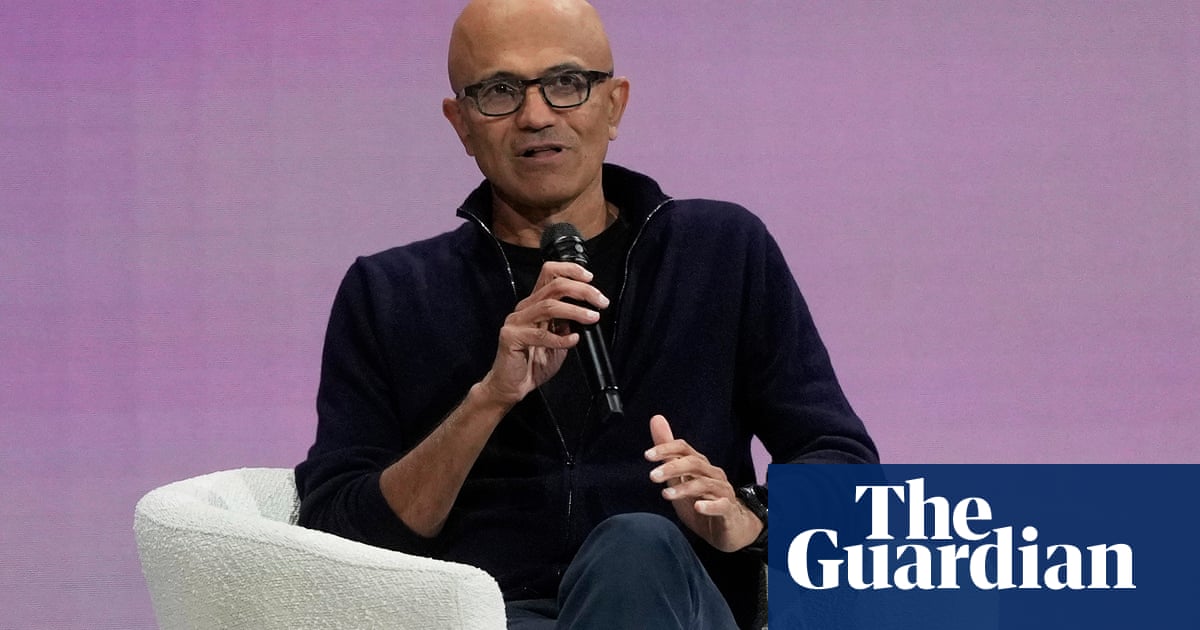AMicrosoftemployee disrupted a keynote speech by the company’s chief executive with a pro-Palestinian protest at the company’s annual developer conference on Monday.
Joe Lopez, aMicrosoftfirmware engineer who worked on parts of the company’s cloud-computing platform, Azure, was escorted out the Build conference by security nearly immediately after he confronted Satya Nadella.
“Satya, how about you show how Microsoft is killing Palestinians,” Lopez yelled. “How about you show how Israeli war crimes are powered by Azure?”
After the disruption, Lopez sent an all-staff email explaining his decision to stage a protest.
“As one of the largest companies in the world, Microsoft has immeasurable power to do the right thing: demand an end to this senseless tragedy, or we will cease our technological support for Israel,” read the email,which has also been published on Medium. “If leadership continues to ignore this demand, I promise that it won’t go unnoticed. The world has already woken up to our complicity and is turning against us. The boycotts will increase and our image will continue to spiral into disrepair.”
Organizers with a worker-led group called No Azure for Apartheid (Noaa) also organized a protest to coincide with the developer conference. The group has been protesting against Microsoft’s AI and cloud-computing contracts with the Israeli military for over a year. The company’s Azure cloud software has been found to have enabledIsraeli surveillanceof Palestinians and been used by the Israeli air force’sOfek Unit, the unit which manages databases of potential targets for lethal airstrikes. Leaked documents also show that Microsoft has a “footprint in all major military infrastructures” in Israel, according to +972 Magazine.
“One year ago, workers launched theNo Azure for Apartheid campaign and petitionin a state of urgency after 7 months of genocide,” wrote Anna Hattle, a Microsoft worker and organizer with Noaa, in an email to company leadership on 15 May. “We are currently witnessing the samecrimes committed 77 years agowith one key difference: now, the Israeli Occupation Forces are carrying out this genocide at a much greater scale thanks to Microsoft cloud and AI technology.”
Lopez’s demonstration is the second of its kind in just the last two months. On 6 April, two Microsoft workers, Ibtihal Aboussad and Vaniya Agrawal,disrupted a Microsoft AI eventand called the company’s AI chief, Mustafa Suleyman, a war profiteer. Both workers have since been fired. The status of Lopez’s job could not be determined. Google saw similarinternal protests and mass firingslast year over its contracts with the Israeli military and government.
In response to the reporting on Microsoft technology’s use by the Israeli military, Microsoft said that athird-party investigationfound “no evidence” that its technology was used to harm or target people. The activist group, Noaa, disputes the company’s conclusion. The company did not immediately comment on Lopez’s demonstration.
Sign up toTechScape
A weekly dive in to how technology is shaping our lives
after newsletter promotion
“Leadership rejects our claims that Azure technology is being used to target or harm civilians in Gaza. Those of us who have been paying attention know that this is a bold-faced lie,” Lopez wrote in his all-staff email. “We don’t need an internal audit to know that a top Azure customer is committing crimes against humanity. We see it live on the internet every day.”
Lopez’s protest comes just days after Palestinians marked 77 years since the Nakba, the Arabic word for catastrophe used to describe the when an estimated 750,000 Palestinians were forced to flee or were expelled from their homes in 1948.
